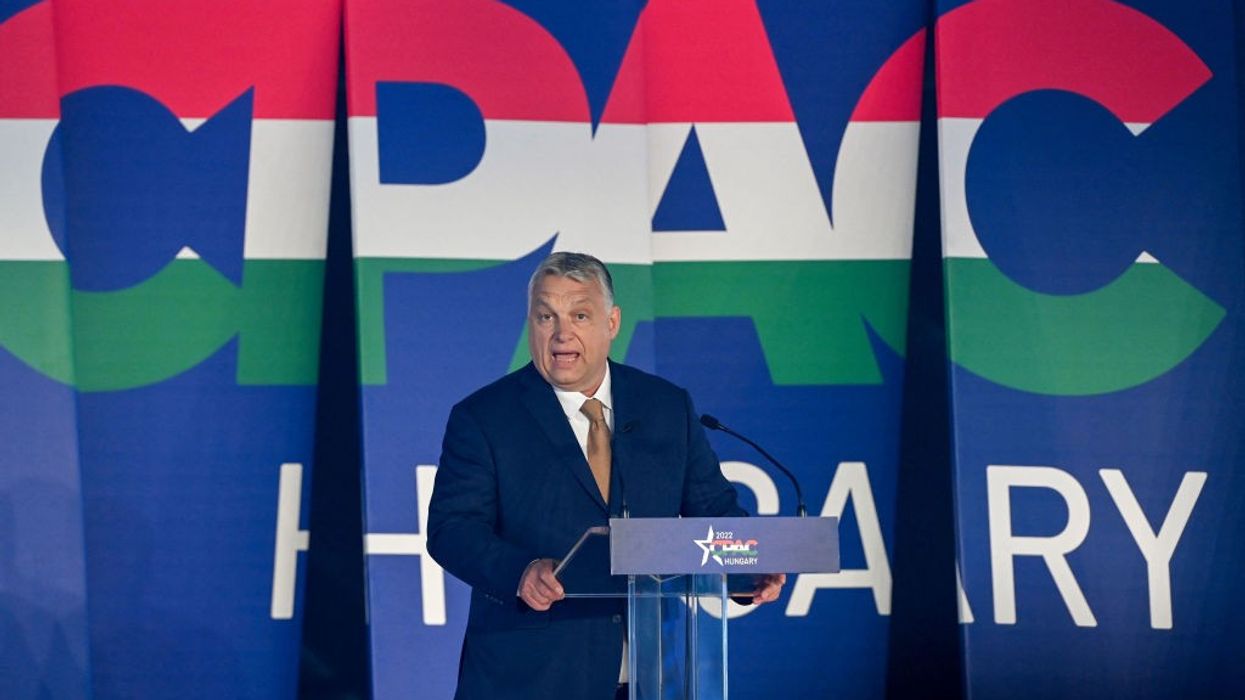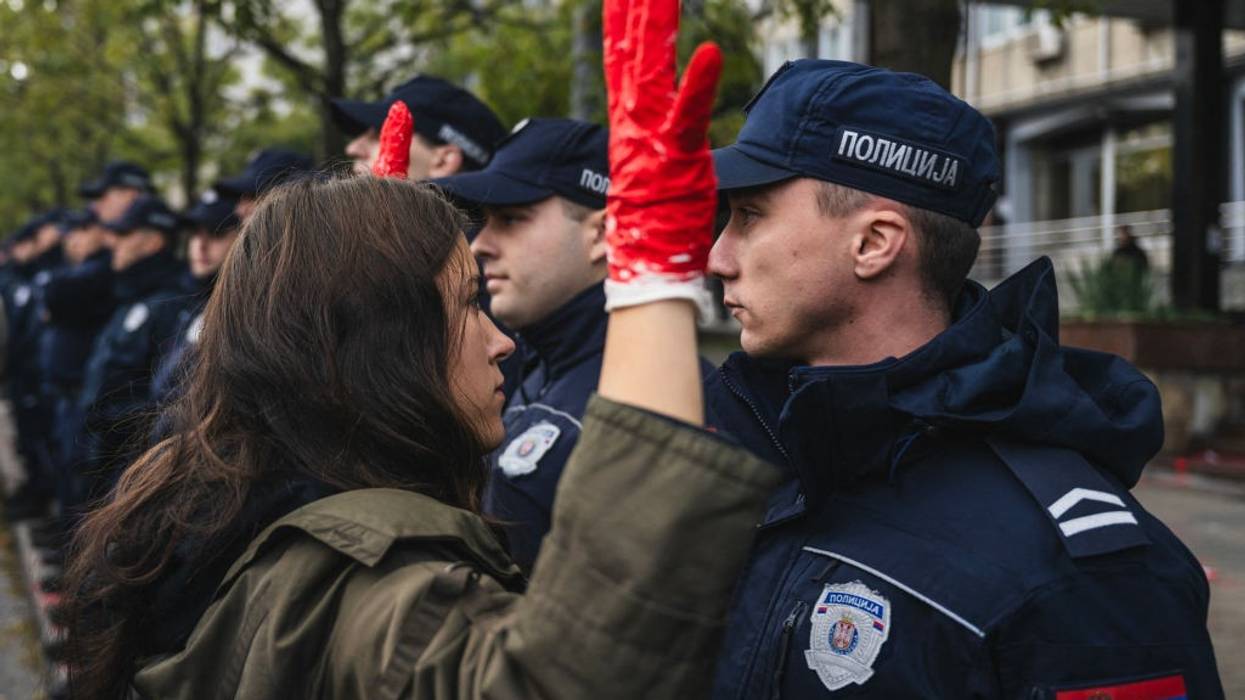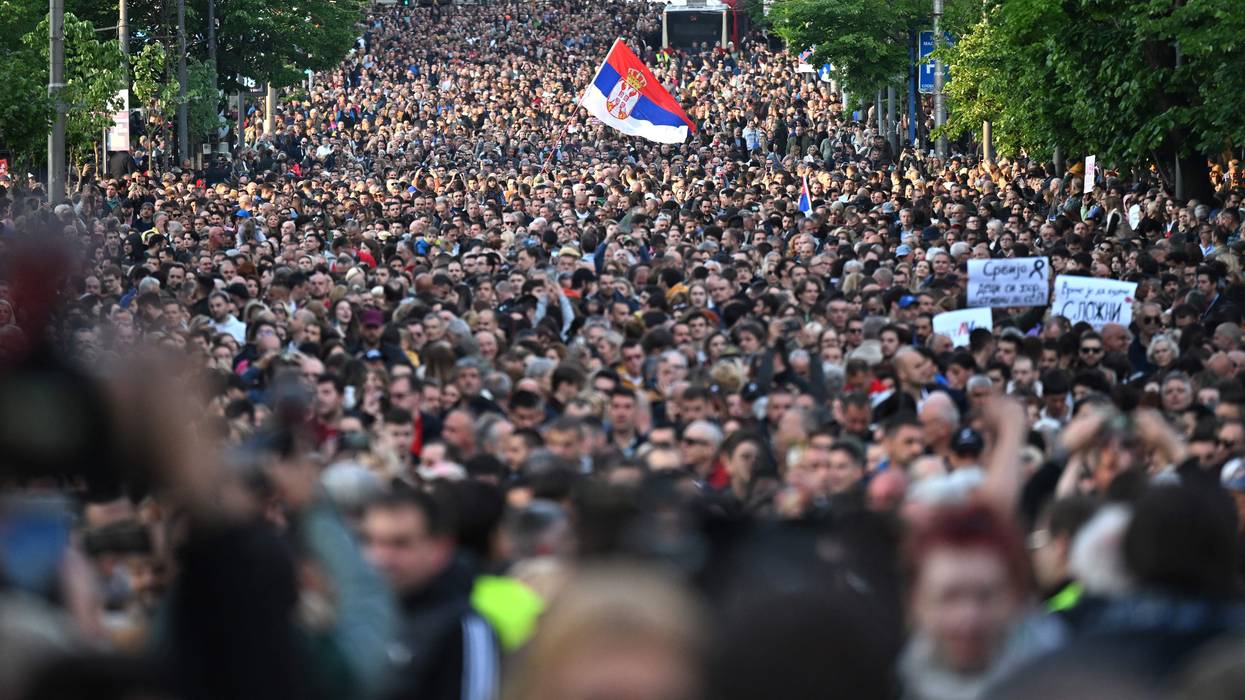Dissenters Against European Autocrats Warn of 'Democratic Backsliding' in Trump's America
"Many Americans think this is something that only happens to others, and I think that mindset has to be fought," said Katalin Cseh, a member of Hungary's opposition Momentum Movement Party.
Eastern European dissidents are warning that the autocratic politics that took over their countries is in the process of taking over the United States as well.
At a web forum hosted Tuesday by the Center for American Progress, opposition politicians and journalists from Hungary, Serbia, and Turkey spoke about the tactics that strongman leaders used to rip up the foundations of their nations' democratic institutions. They urged Americans to resist President Donald Trump as he tries to do the same.
"I do believe that many Americans think this is something that only happens to others, and I think that mindset has to be fought," said Katalin Cseh, a member of Hungary's opposition Momentum Movement Party.
Her nation, under authoritarian Prime Minister Viktor Orbán, is often cited as a textbook example of "democratic backsliding" in the 21st century.
Since his election in 2010, with a supermajority in the parliament, Orbán has worked to steadily capture key political institutions like election authorities and the judiciary, and cultural ones like the media and universities to bend them toward a "nationalist conservative narrative."
Notably, Cseh says, Orbán did this not by formally abolishing institutions, but by purging dissent and taking them over:
The first month of the new government back in 2010 started with the complete overhaul of the Hungarian constitution without democratic discussion. Senior judges were forced into early retirement and a new judicial administration was created...
The freedom of the media is almost lost...The media authority was staffed by loyalists. A pro-government businessman acquired private media and later donated it to a foundation run by the government. This means that if you turn on almost any channel, it has Fox News running on it...
The electoral system is very heavily manipulated. The government, after they got into power, changed the electoral system to one that is more fitting to them and gerrymandering very heavily to disenfranchise more progressive voters and to change the districts to a more favorable one for them...
The universities' minds were centralized and now mostly run by foundations set up by the government. The curriculum was also centralized and was very heavily infused with nationalist and conservative theory, and minorities, LGBTQI+ and women's rights are almost obliterated.
Cseh noted that the so-called "Hungarian blueprint" is heavily influential among American conservatives, who have hosted Orbán at conventions like CPAC and consulted pro-Orbán think tanks to create the 'Project 2025' agenda Trump has used during his second term.
Trump, moreover, has been carrying out similar ideological purges of government through the mass firings of disloyal public servants, threats to defund universities that refuse to teach the MAGA worldview as doctrine, and attempts to legally erase the government's recognition of nonwhite and LGBTQ+ individuals.
"What if this is a blueprint for MAGA? What if this is something you will see in your country?" she asked.
Szabolcs Panyi, a journalist with the Hungarian website Direkt36, likewise raised comparisons between Orbán and Trump's assaults on the press.
"It's not a coincidence that Orbán went after the free media," Panyi said. "He understood for him to grab power it's essential that people just don't see behind the curtains and don't understand what's happening."
He pointed to Trump's attacks on the free press, including his use of lawsuits, FCC investigations, and threats of prosecution against critical media outlets.
"It's interesting to see how large outlets or media owners or conglomerates try to appease Trump by settling lawsuits, firing journalists and editors," Panyi said. "It reminds me of what happened in Hungary in the 2010s."
Dissidents from Serbia and Turkey have dealt with a similar backslide and raised similar parallels to the situation in America.
Ceylan Akça, a member of the pro-Kurdish People's Equality and Democracy Party in the Turkish parliament, discussed President Recep Tayyip Erdoğan's use of citizenship as a political weapon against minorities like the Kurds. He has moved to strip the citizenship of naturalized Kurds, who he says support "terrorism" by militant groups like the PKK.
"We'll see people with Turkish citizenship, who were naturalized, stripped of their citizenship and being deported," Akça said, "which is the example you're having in the U.S. where you're having a discussion about naturalized citizens losing citizenship."
"We have to be aware that they are using [tools that] are usually legal but misused, institutional but hollowed out, democratic in appearance but authoritarian in essence," said Tamara Tripic, the chair of the Democratic Dialogue Network in Serbia.
Tripic said that the recent youth-led anti-corruption protests against President Aleksandar Vučić in her country provide a roadmap for how to resist. She cited the importance of mobilizing young people.
"Students actually started the process. They were the most powerful resistance we saw in recent years," she said.
Cseh said that part of building that engagement needed to come from creating a viable alternative to the right that promises people "tangible change" in their lives.
"Autocrats are not always good at governing," she said, "so the cost of living crisis, cost of healthcare, education, everything. Everybody senses that."
She said that Americans have "a very good opportunity ahead" in the next elections to reassert power.
"Start preparing for the midterms like yesterday," said Cseh. "Go to every protest, go to every march, stand right beside everybody who is being attacked, no matter if it is a group you belong to, or something that you do not share personally. You have to stand side by side [with] each other and help and support those who might feel isolated and alone."


